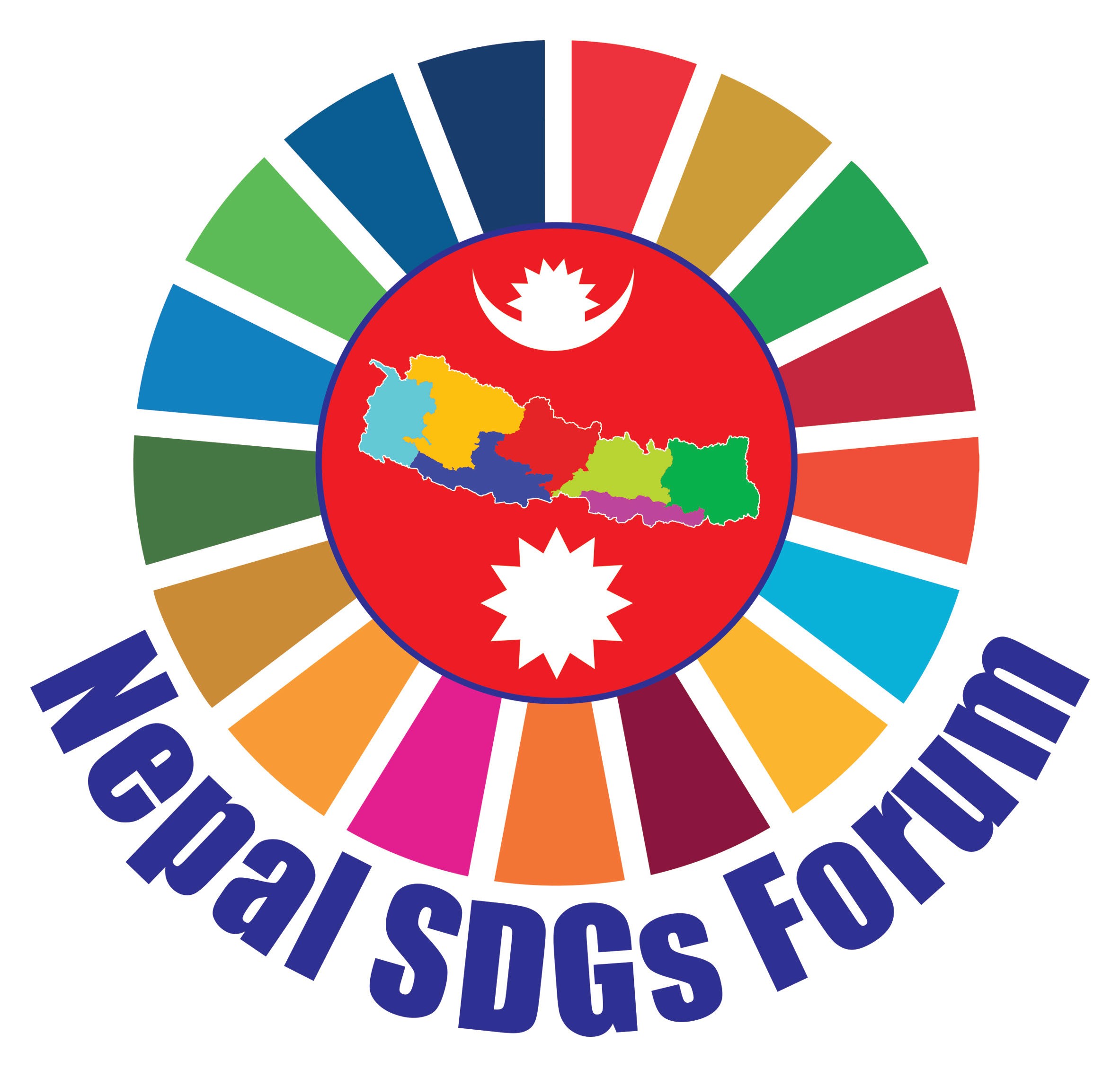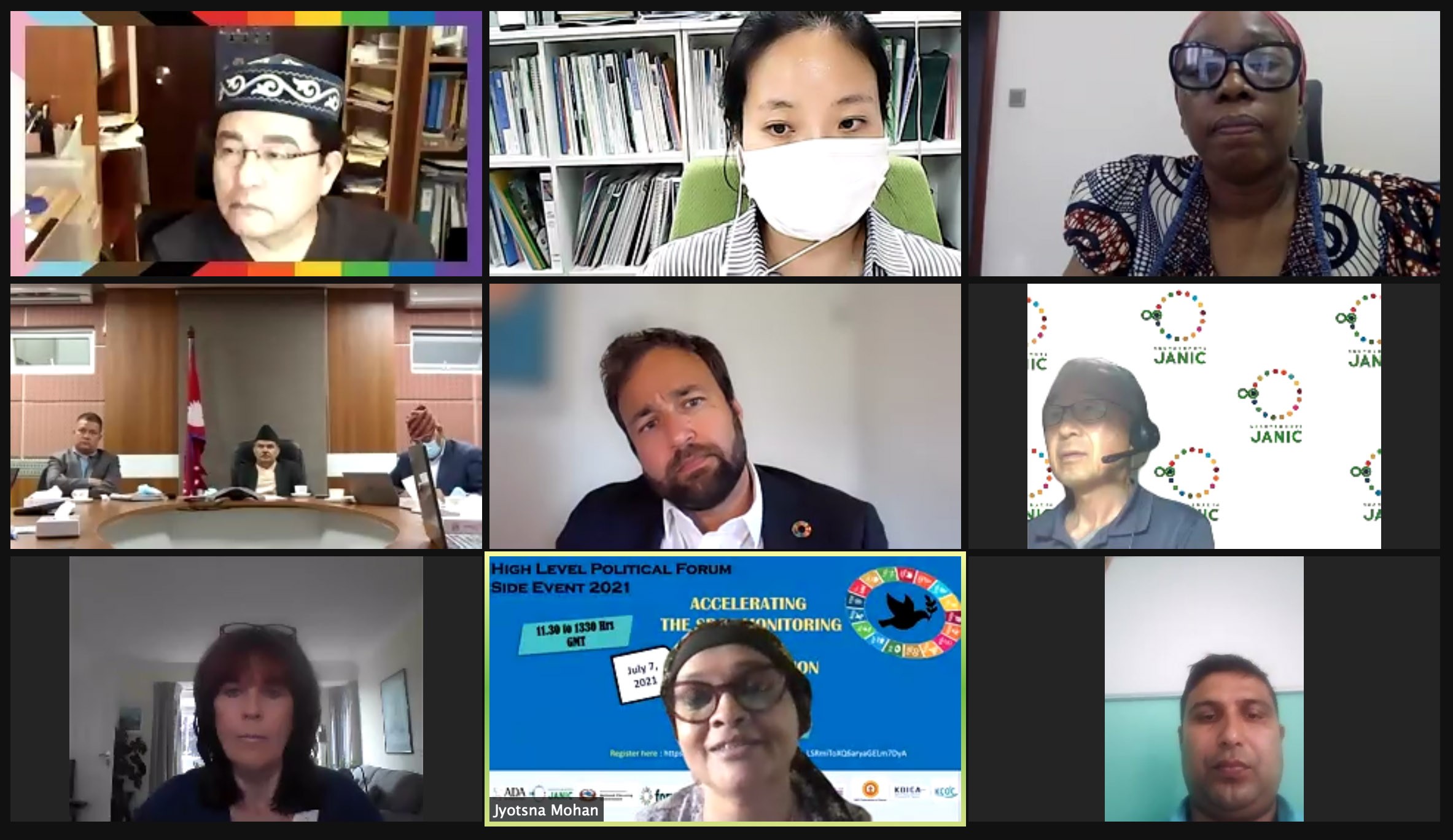Side Event on Accelerating the SDGs Monitoring and Implementation Actions Using SDG 16+
NGO Federation of Nepal co-hosted the virtual side event on Accelerating the SDGs Monitoring and Implementation Actions Using SDG 16+ on 7 July 2021. Side events of the UN High-level Political Forum (HLPF) are held outside the official programme and provide great opportunities to discuss the theme and SDGs under review at the HLPF.
The meeting was hosted by National Planning Commission of Nepal with co-hosts namely All Party Parliamentary Group Malaysia On Sustainable Development Goals (APPGM-SDG), United Nations Resident Coordination Office of Nepal, Korea NGO Council for Overseas Development Cooperation (KCOC), NGO Federation of Nepal, Nepal SDGs Forum, Japan NGO Centre for International Cooperation (JANIC), Transparency, Accountability & Participation (TAP) Network, Forus, and Malaysian CSO SDG Alliance.
This side event brought together the government officials, policy-makers, the UN institutions, experts and civil society activists to share and address the critical challenges pertaining to the monitoring of SDG 16+.
SDG 16+ bring in the agenda of human rights, civil society participation, good governance, justice, equality and inclusion. These are not only the major concerns of civil society but also the enablers and accelerators of SDGs.
The side event has been a great opportunity to further highlight Goals, targets and agenda associated with SDG 16+. With exchange of progress, challenges and experiences, the stakeholders have renewed their commitments to achieving SDGs by taking SDG 16+ as the accelerators and monitoring tools.
The panellists, speakers and participants acknowledged mainstreaming of SDGs at subnational level, lack of data, coordination and harmonization, Covid-19 pandemic, and inadequate political commitment among others as the challenges.
NFN President Jit Ram Lama made welcome remarks. He emphasized that the Goals like SDG 16, SDG 5, SDG 17 and SDG 10 have been the primary concern of the civil society. CSOs can work with and support the governments to implement many initiatives. He said no one should undermine participation, monitoring role and contribution of civil society.
In his key-note speech Vice-chair of NPC Nepal Prof. Dr. Puspa Raj Kadel shared Nepal Government's initiatives to mainstream and implement the SDG 16 plus. Some of the Nepal Government's initiatives he shared included the ongoing effort of 'leave no one behind framework', province-wise analysis of human development, and preparation of SDG 16 report which is expected to be published soon.
There were two panel discussions on integrating SDG 16 plus with human rights at global level, and assessing the regional and national trends of SDG 16 plus over the last 5 years and relevance and importance of SDG 16 plus in post Covid-19 recovery era.
Here are some of the key points that emerged during the discussion and deliberations:
- Poverty, inequality and corruption give rise to conflict.
- SDG 16 should be annually reviewed by HLPF.
- Effective multi-stakeholder partnership for SDG 16 is necessary.
- Citizen-led data should be recognized to complement the data gaps.
- Global initiatives should focus and invest in civil society initiatives.
- Find the link between SDG 16 plus and other SDGs.
- Data only can demonstrate and concretize the concept and situation of inequality.
- CSOs’ solidarity and action, and sharing and promoting good practices is essential.
- Need to revitalize the global partnership for development.
- Middle income class are at the risk of falling down the poverty line and the poor to extreme poverty.
- Not only the policies but the institutions and implementation are vital.
- Mutual cooperation between the civil society and government can be enhanced through forums such as VNRs, and UPRs.

